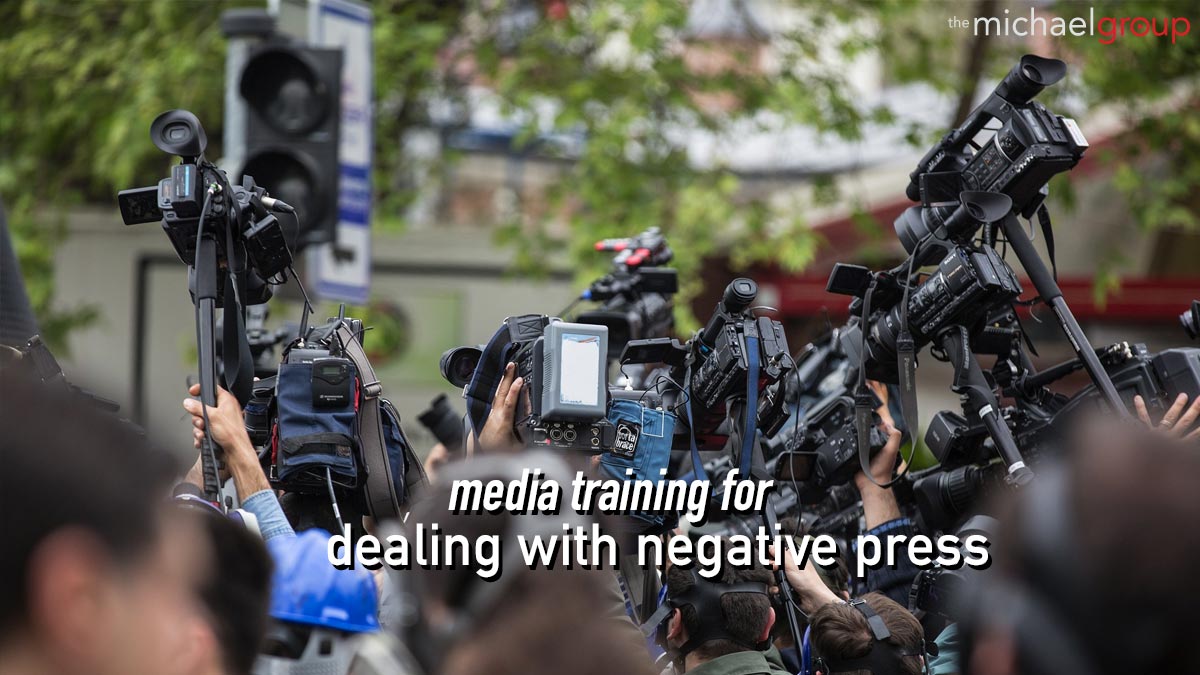
A time may come where your business could face some negative media attention, may it be after an interview or a recently released article. However, in this digital age these publications may have been written a long time ago but may resurface later and can be widely and very easily spread with social media. Managing bad press requires cautious and knowledgeable media training actions to manage the situation to avoid making the it worse.
Before proceeding it is a good idea to call in a third neutral party and get them to go over the media and give their feedback, if it is indeed negative and or harmful. Once it has been deemed that the media is negative the first step in this situation would be to think through what you are going to do and plan on how to tackle the media going forward with all the relevant facts. Some relevant facts would be to first look up the source of the negative media and gather facts about the situation being reported as well as the facts surrounding when it was reported.
If the media has incorrect facts it is possible to contact the reporter/reporters and request that there be a change and an apology issued. When talking to them always remain polite, calm and factual, it is easier to talk to someone when they are being polite and respectful. Most reporters are willing to hear all sides of the story, irrespective of their own beliefs.
If you have not been able to settle the dispute with the reporter or did not settle the dispute in the manner you wanted. It is possible to speak to the Editor of the media and try and handle the situation from there.
If the previous steps have not worked, you now have the opportunity to write a response of your own about the situation and explain things from your own point of view on any media platform available. This letter can be addressed to anyone, the editor of the media or even the public. It is important to be very careful with this response and take as much time as needed as this response will be wide spread and explain your view. Try not to accuse the media company in the response as you may burn a bridge with them and need them in the future. If you are in the wrong in the situation, it is best to apologize and try and remedy the situation before it gets out of hand.
The negative media may be a good thing, it may be the opportunity to change the way the business works for the better. If this is the case, it may be better to say thank you and take responsibility for your actions and explain how you will improve your company going forward.
A common thread with all of the above-mentioned approaches is to act as fast as possible. Opinions travel fast on social media and can quickly change the way the public views you. A fast response is the best way to protect the company’s reputation in negative media situations.
Hopefully these tips will help you in this very stressful situation and check out other blog entries such as speaking in front of a camera.